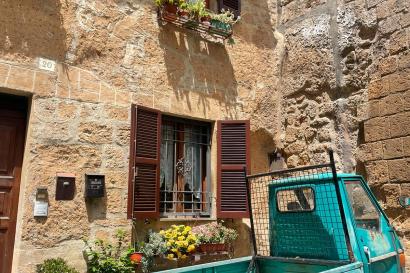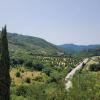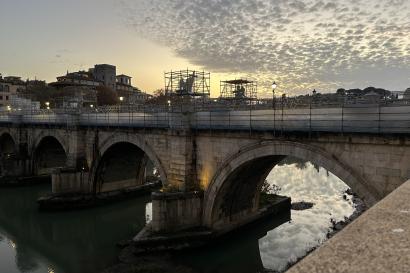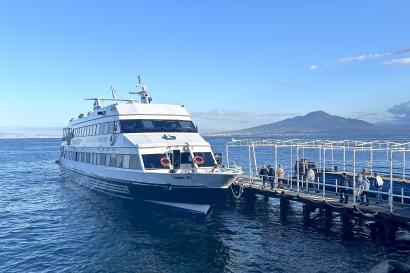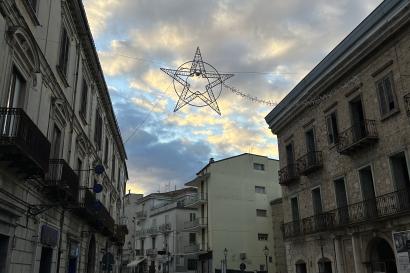Before beginning my journey abroad, I was incredibly nervous about the ways that I would manage my money abroad, especially since I took responsibility to pay for all of my daily expenses while living and traveling for the summer. My financial limitations as a low-income, first-generation college student from a rural area were a large factor in my consideration to study abroad, and as a student benefitting from the generosity of IES Abroad donors for scholarships and financial aid, my experience in Rome has been immensely transformed into a period with freedom to endlessly explore and become immersed in the Italian language and culture. Despite these scholarships and financial aid opportunities, I was still worried about how I would manage my personal funds for my six weeks in another country, especially because it can be so easy to spend money without much thought—but every cornetto and gelato adds up quickly if you’re not careful! However, after a few weeks of adjusting to life in Rome, I have not only been able to indulge and enjoy some of the special treats and trips that the city has had to offer, but I have been able to avoid incurring some additional, and often unnecessary, expenses. By doing so, I have found great money-saving alternatives that have allowed me to still have fun without worrying too much about breaking the bank!
One of the most important things to consider when studying abroad is your personal budget. It’s a good practice to maintain a comprehensive record of your spending and look at where your funds are going. To keep track of my daily spending, I have consistently kept a small, pocket-sized notebook with me, and I make a quick note after I make a purchase to keep myself accountable and aware of how much my spending averages and assess where I need to re-allocate some funds. At the end of the week, I calculate my totals and add them to a comprehensive list of my total spending from my time abroad.
For example, if I noticed that too much of my budget for a week was dedicated to eating outside at restaurants and bars, I decided to spend the next week planning out fun meals to try cooking at home with my roommates. Some nights, I have prepared some foods that I’ve missed from back home and tried some foods that are well-loved by my roommates from other parts of the U.S. On the majority of nights though, one of my favorite things that I have done—both to save money and learn more about the local lifestyle—is my exploration of trying and preparing Italian, and particularly Roman, cuisine! Over the past few weeks, I have had so much fun trying new foods in the city with my roommates, then looking online and learning how to make them at home in my apartment in Rome. Not only does it save money by shopping at the local supermarket, it’s also much cheaper to split the cost of ingredients, and it’s a great way to make memories and bring home new culinary traditions that will forever remind me of my time in Italy.
Also, when shopping and looking for deals at local supermarket, you can find some items much cheaper at the grocery store than if you try to purchase things in specialized stores (especially for personal hygiene items, including deodorant, shampoo, conditioner, soap, and sunscreen). Similarly, if you are in need of new clothing items or want to shop around for souvenirs and gifts to bring home for yourself, family, and friends, I would avoid shopping in the highly popular shopping areas such as Via del Corso, where there are huge stores such as Zara, H&M, and other popular name and designer-brand stores, unless you are looking for a very specific item. It’s definitely worth walking through and exploring, but I wouldn’t recommend going on a pricey shopping spree there. Instead, I would highly recommend checking out some of Rome’s open-air flea markets to browse through stalls of inexpensive jewelry, shoes, leather goods, and vintage clothing and décor. Personally, I love some of the markets like Campo de’ Fiori (which is not far from the IES Abroad Rome Center!) and Porta Portese in Trastevere.
Lastly, I have saved a lot of money by taking advantage of student discounts on museum tickets, certain restaurants, and other entry fees for exhibits and admission around the city. My roommates and I were able to find lots of fun and inexpensive activities in the city, including free admission and reduced-price tickets for students and young residents for events including the TIM Summer Hits concert series of new and popular Italian music hosted in Piazza del Popolo! While it may seem expensive to fund all sorts of extra excursions and pay for guided tours, some of the most fun I’ve had is simply by independently exploring and participating in unique, once-in-a-lifetime experiences such as these! There are plenty of opportunities to immerse yourself in the culture of your study abroad location, and many are also regularly recommended to us by the IES Abroad Rome staff, who send us weekly newsletters with updates on upcoming events and activities in and around the city, and facilitate our communication with Italian Student Companions for other recommendations for places to travel, eat, and explore in nearby areas. My friends and I have taken advantage of their advice and spent our free time on the weekends taking inexpensive trains (some tickets as low as four euro!) to the seaside or a quaint medieval town in the Umbrian countryside.
My lifestyle in Rome is much different from my daily life in the United States, though my practice of financial planning and budgeting has eased my pre-existing stress about experiencing my time abroad to the fullest! If you are considering studying abroad and have similar concerns, I hope you can take my advice and utilize these tips no matter where your study abroad journey takes you!

Bailey Gregory
Hi, I’m Bailey! I’m from the mountains of western North Carolina and currently am a junior at UNC Chapel Hill studying Creative Nonfiction Writing and Art History. I love to read, and can usually be found fiddling in my garden or going for a walk.

